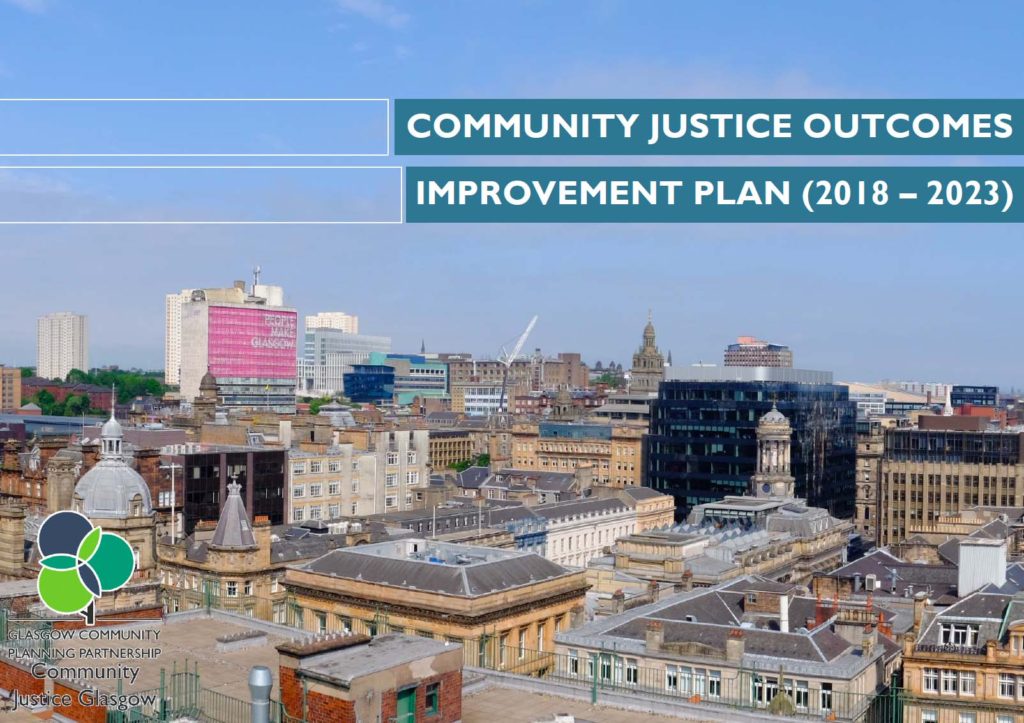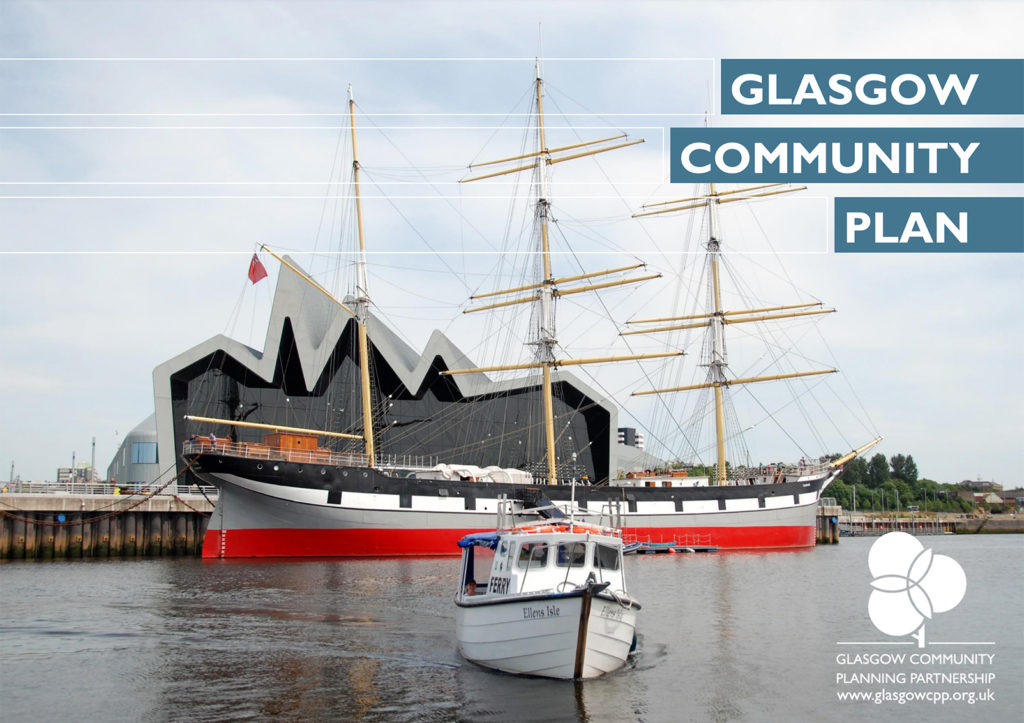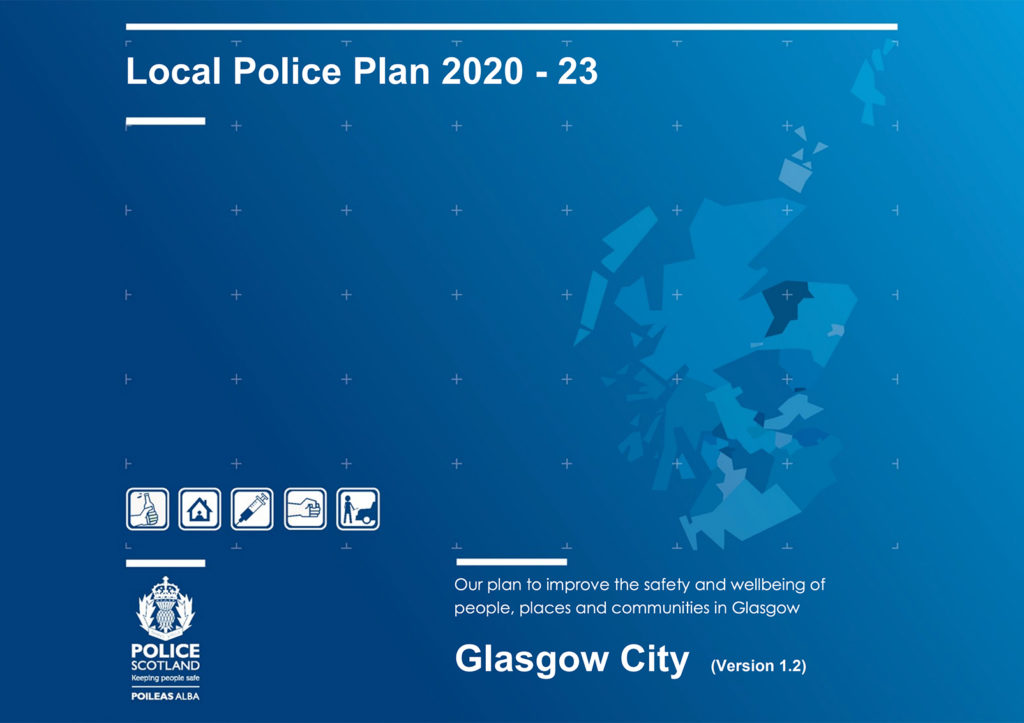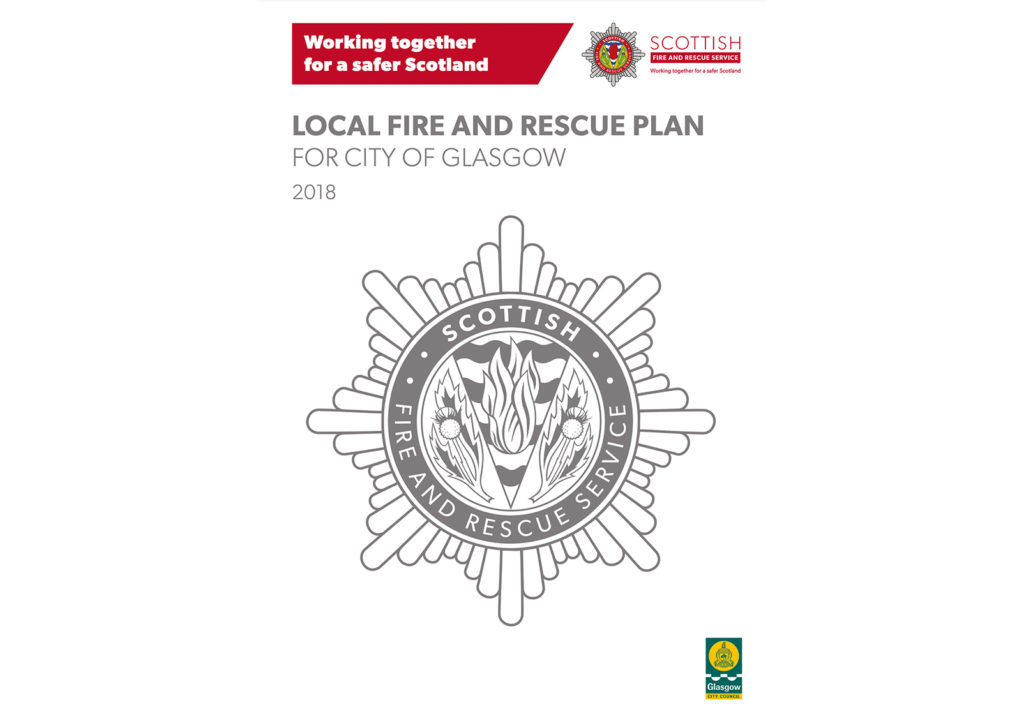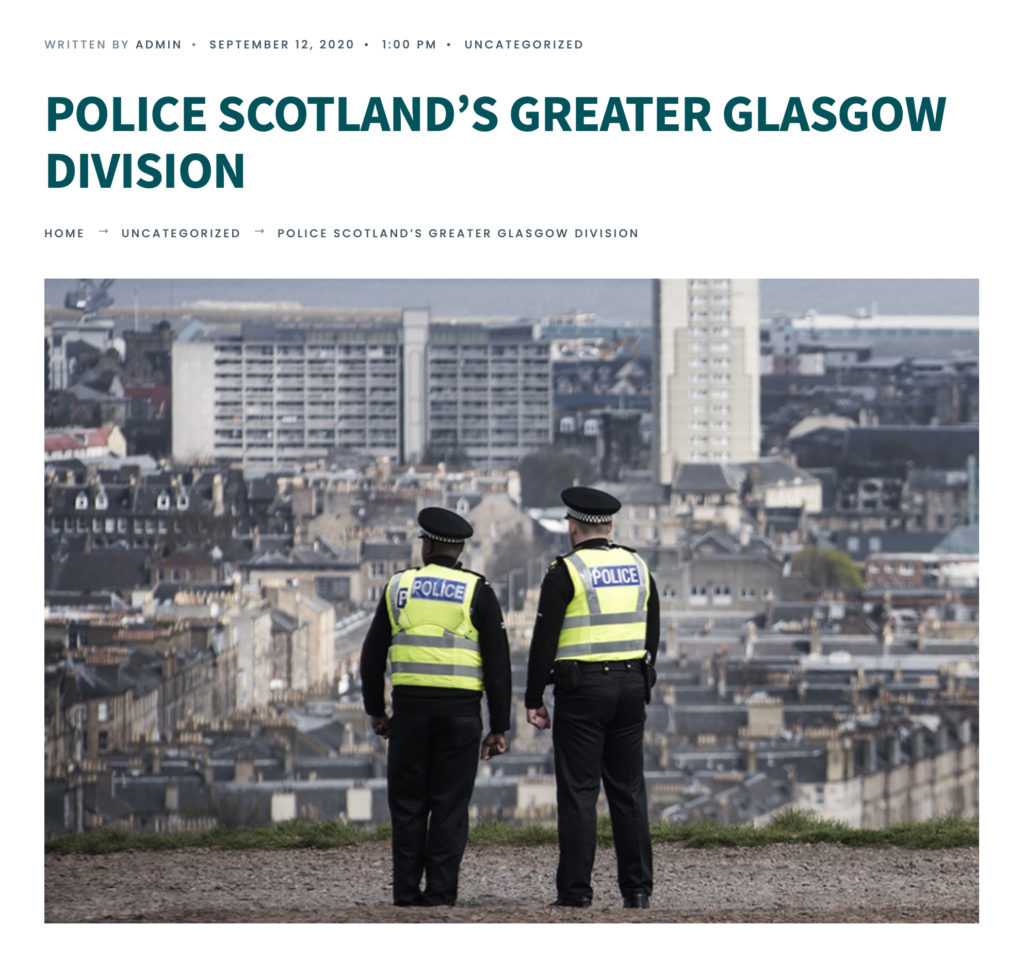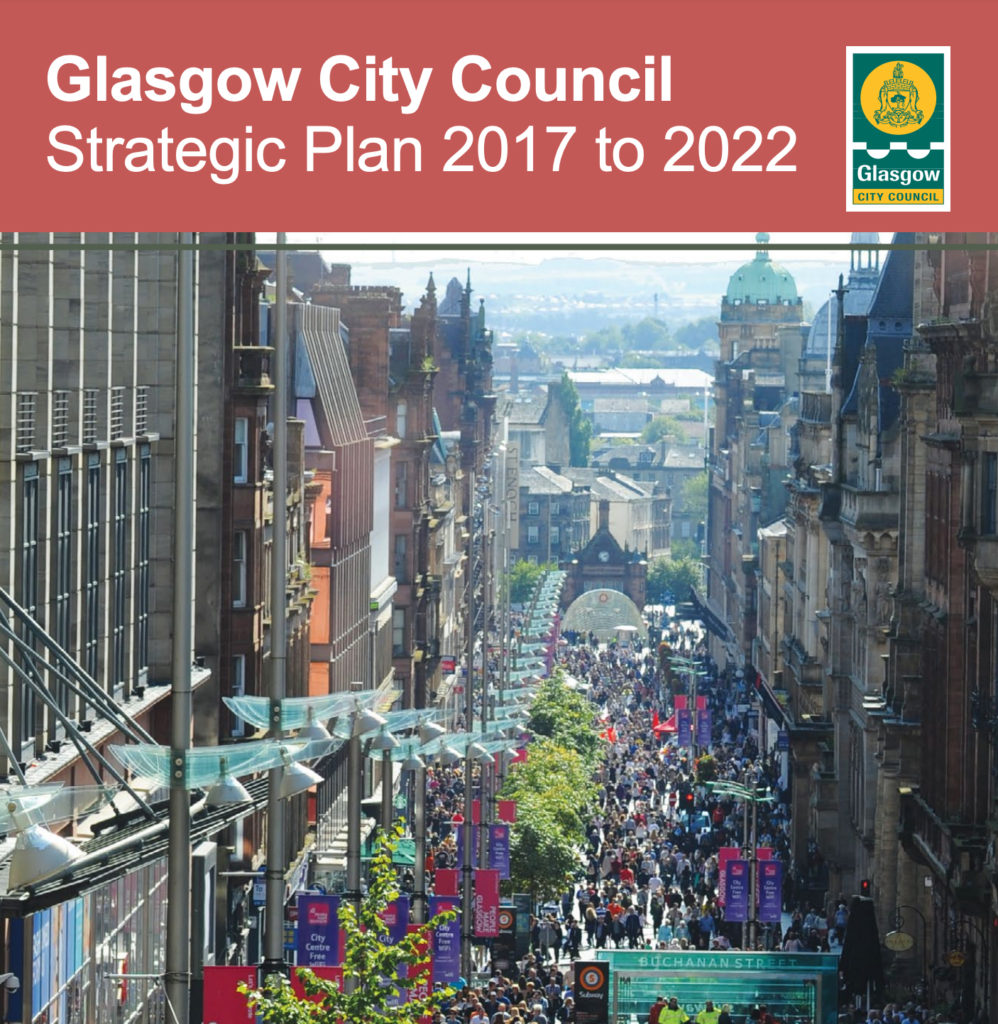Director of Community Empowerment & Equalities< Glasgow City Council
Figure 1 – The Structure & Governance for Community Justice in Glasgow

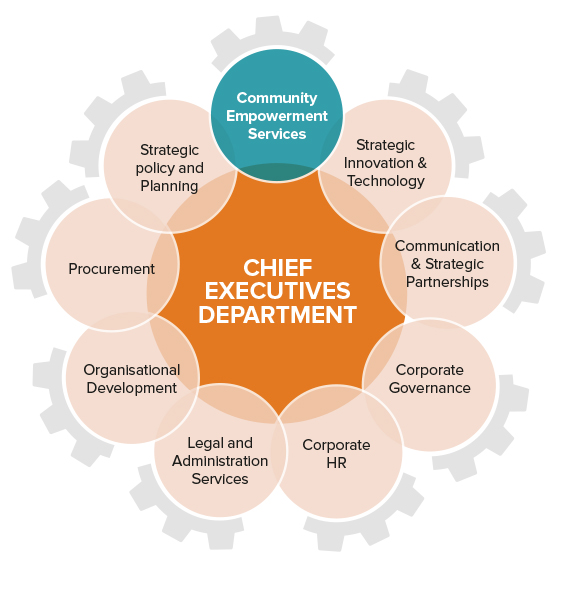
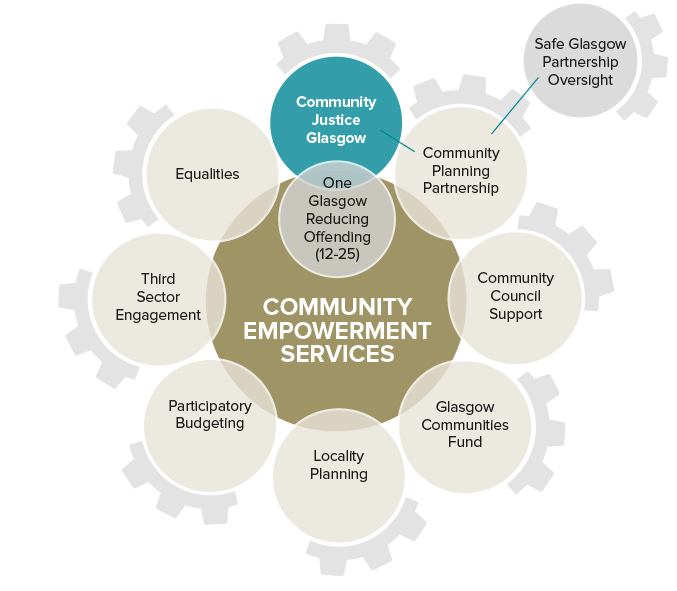
In the Community Justice Annual Reporter 2018-19, I outlined the new (at that time) structural arrangements for Community Justice in Glasgow (Figure 1 above) in the article ‘Connecting Community Justice – A New Home’. The article described the relationship and interconnected/shared objectives between the priority themes (Figure 2 below) for Community Justice Glasgow, the Community Planning Partnership (Community Empowerment Service) and the Safe Glasgow Partnership.
Figure 2 – Click on the Themes to Learn More
In the 2019-20 Annual Report, the Police Scotland Local Authority Liaison Officer and Scottish Fire and Rescue Service Liaison Officer both provided articles telling the story of how the partnership was delivering against the priorities set out in the Community Justice Outcomes Improvement Plan, Glasgow Community Plan. Local Police Plan and Local Fire & Rescue Plans for Glasgow:
CLICK THE PICTURE LINKS BELOW TO ACCESS THE DOCUMENTS:
These articles are still available and you can CLICK ON THE LINKS BELOW TO READ THEM:
You can read more about the relationships in the article, ‘A Safe structure’.
These documents and articles above demonstrate a shared ambition and focus around addressing inequalities, breaking down the barriers to the opportunities that empower all of our citizens to be the best they can be, and true collaboration to deliver services that seek to redress the balance of inequality and the impact that this has on people’s lives – delivering the right services at the right time.
With the challenges of the last year, brought about by the COVID-19 Pandemic, never in my memory has there been a time where the strengths of this truly collaborative and collective thinking amongst partners for the City has been more vital. Without these having been in place, with the relationships and shared understanding already built and on solid ground and embedded pathways in place, I doubt the City’s vital services would have coped.
The impact of crime and criminal justice is felt across society as a whole, it is not confined to those who are victims of crime, nor to those who commit those crimes. Community Justice is the interface between Criminal Justice and Social Justice which sit in a wider political, economic and social context, giving sense to its home within the Community Empowerment Service.
You will perhaps have read about these links in some of our previous articles, for examples:
SEVERE AND MULTIPLE DISADVANTAGE – AT THE ROOT OF OFFENDING BEHAVIOUR
MEETING THE CHALLENGE FROM THE ROOTS UP
These explain the relationship between deprivation and criminality. The Pandemic created the perfect storm for levels of deprivation to increase. A series of working papers by the Department of Work and Pension (DWP) – CLICK THE PICTURE LINK BELOW TO ACCESS THE SERIES OF PAPERS – investigating the income crisis among low income people who access Universal Credit in Scotland during the COVID-19 Pandemic, found that, in Glasgow as of November 2020:
- just over 71,000 people were on the Universal Credit caseload in Glasgow – 88% higher than in early March 2020 – people in the justice system are known to have a higher prevalence of reliance on Universal Credit than the general population.
- 28,000 people in Glasgow who started Universal Credit in the spring had been unable to leave it within six months; 71% of the total Glasgow caseload has been receiving support between 6 months and 2 years – coming into contact with the Justice System, especially where there is a prior conviction to declare, creates further barriers to education and employment.
- The Pandemic had exacerbated the crisis of in-work poverty which appears in Universal Credit data, with more working people than ever are having to access Universal Credit due to labour market disruption. – people who come into contact with the justice system tend to be lower skilled, so those who are working are more likely to be in minimum wage jobs leaving them more likely to experience in work povery.
- 44,000 people on Universal Credit in Glasgow are subject to conditionality (sanctions).
For the people who come into contact with the Justice System, the sanctions figures are particularly alarming – we know that these are the very people who are some of the most vulnerable and often lead the kind of chaotic lifestyle that is likely to result in being sanctioned. The research showed that benefit sanctions are counterproductive, particularly for claimants who are already attached to the labour market, leaving gaps in provision for the very people who are facing the sharpest ends of the crisis.
Over the course of the year, through the strength in partnership that we have built since the introduction of the Community Justice (Scotland) Act 2016, we have and will continue to mitigate and overcome the impact of the crisis and grasp the opportunities for change that have come about through a shared vision and priorities, amply summed up in the Glasgow City Council Strategic Plan 2017-2022:
“…to have a world class city with a thriving, inclusive, economy where everyone can flourish and benefit from the city’s success.”
CLICK ON THE PICTURE LINK BELOW TO ACCESS THE DOCUMENT:
- Reducing inequality across Glasgow by creating inclusive growth – helping to tackle poverty, poor health and improving neighbourhoods;
- Creating more opportunities for Glasgow’s citizens to become involved in local decisions that affect their neighbourhoods, on how money is spent and how services are developed.
- Focussing on early intervention and prevention approaches.
- Partnership working with all those who can help us build a better Glasgow.
There are many examples from across the Community Planning Partnership, Community Empowerment Service and Community Justice Glasgow Partnership that I could share that will contribute to delivering on all of our shared aims and objectives such as working towards the implementation of Citizens Juries in Glasgow (giving voice to communities of interest such as those with lived experience of the Justice System), work to redesign and implement the Glasgow Communities Fund with a renewed focus on meeting the needs of the most vulnerable in Glasgow (including those in the Justice System), and the work of the Social Recovery Task Force.
Indeed, there will be many examples in articles across this Annual Report. I will leave you with one, which demonstrates that shared vision of reducing offending and re-offending in partnership – which cuts across organisational boundaries with a shared knowledge and understanding of the issues.
CLICK THE LINK BELOW TO WATCH THE VIDEO:
The strategy features a 12-month delivery plan looking at how Police Scotland’s largest division can maximise the role of policing to support the wider public health led approach to drug deaths.
Despite the coronavirus pandemic having a strong impact on what could be achieved, a number of objectives were delivered and continue to be developed.
The strategy group – which includes social work, NHS and senior local police officers – has met regularly to discuss current drug trends, share anecdotal information and understand how certain police activity might affect harm reduction work being carried out by partners.
Officers have been working with Glasgow City Health and Social Care Partnership to help support and understand their approach to providing assistance to people with drug-related issues who are currently being housed in city centre hotels.
Two custody peer mentors joined the Positive Outcomes Project (POP) – a Police Scotland led initiative that offers support to offenders with addictions and referrals to partner agencies. The peer mentors are used in Greater Glasgow Division custody suites to give detainees the opportunity to access support specific to their needs. It comes after a successful joint funding bid was submitted to the Corra Foundation in partnership with Glasgow City’s Health and Social Care Partnership and the charity Aid and Abet.
The custody peer mentors have lived experience of addiction and it is hoped they will help reduce stigma and raise awareness of referral options amongst police officers and custody staff. Since January 2021, they’ve spoken to around 60 people in Glasgow custody suites and 32 have accepted outreach assistance.
Superintendent Gary I’Anson, strategy lead, said:
“Drug related deaths is an extremely complicated issue and there isn’t a quick solution to this.
Over the past year we introduced a local strategy tailored to policing, to try and maximise our role as police officers in supporting that public health led approach.
One key aim is to improve referrals so people are offered help from the most appropriate agency. Police Scotland can’t completely solve the problem around drug related deaths but it’s about looking at what we can do to reduce stigma and understand the trauma that is often behind addiction.
We will look to continue this strategy to reduce the harm caused by drugs and help police officers carry out their job by focusing on a long-term solution to this problem.”
Jim McBride, Head of Adult Services at Glasgow’s Health and Social Care Partnership, said:
“A shared, joint approach has been crucial to helping vulnerable people with addiction issues who come into contact with the police.
“Working collaboratively has considerably improved partnerships, allowing for better responses that improve treatment and care outcomes for people, whilst at the same time, balancing improvements to community safety. The HSCP remains committed to supporting this strategic approach.”














